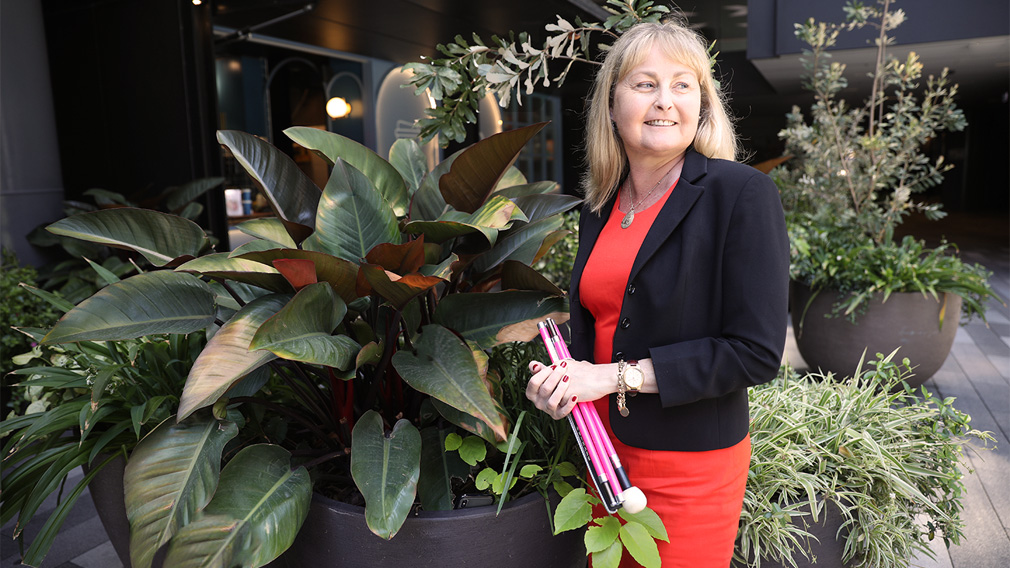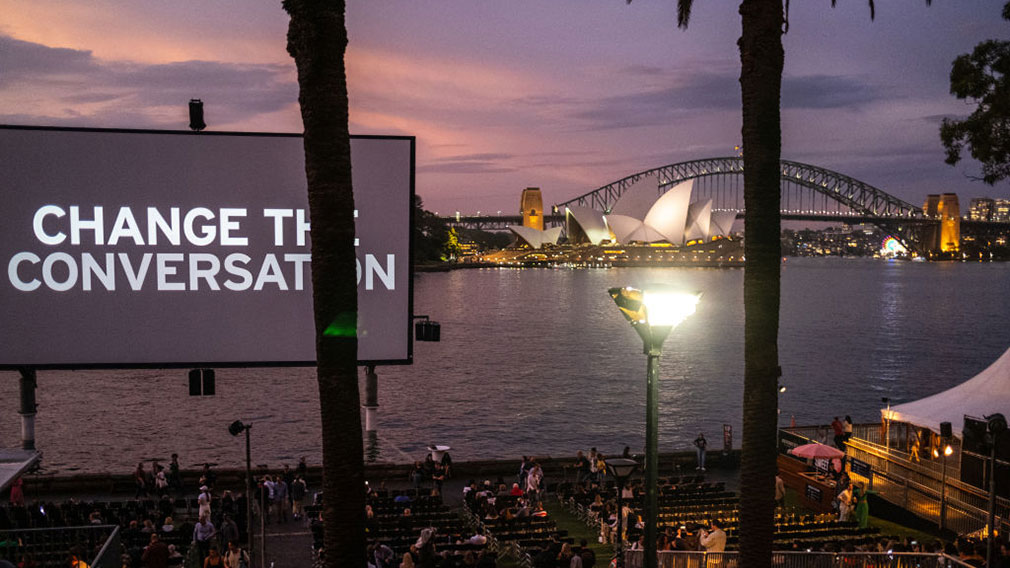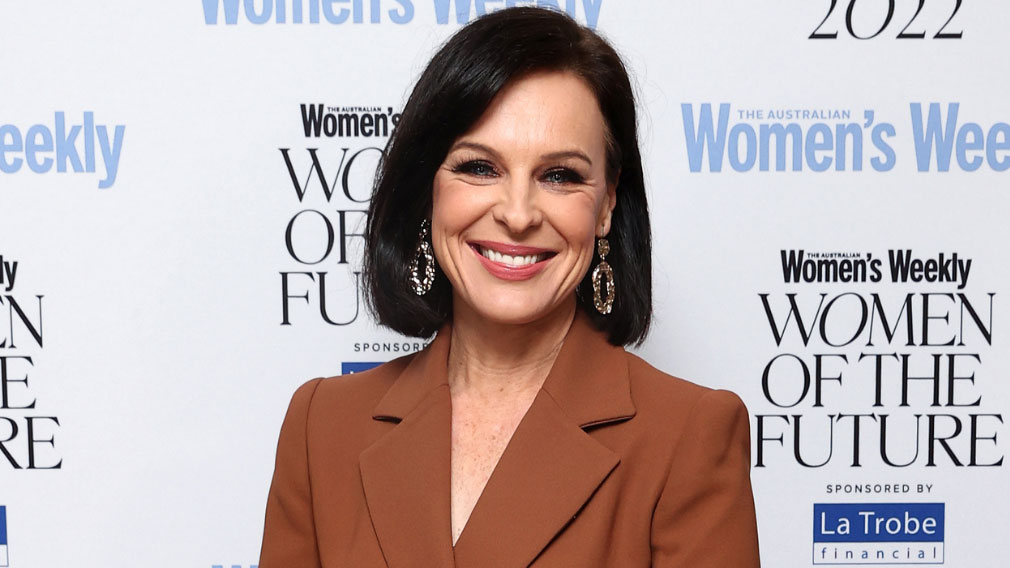Agitating and advocating, by accident

Majella Knobel, Westpac’s access and inclusion director, knocks down roadblocks for people with disability. (Emma Foster)
For as long as she can remember, Majella Knobel has been agitating and negotiating to get things changed.
“If I think back to when I decided to go to university, and I was told by people at the uni, ‘I don’t think this is for you’, it was like waving a red flag at a bull,” says Knobel, who lost her vision in her early 20s due to an aggressive autoimmune disease.
During a childhood spent in and out of hospital for various health issues, Knobel says the experience of feeling she was “treated like a number” has driven her determination to challenge the status quo.
“Every seven years my parents were wondering what was going to happen next,” recalls Knobel.
“I was diagnosed with type one diabetes when I was seven, at 14 I got lupus which is the cause of my eyesight loss, then in my early 20’s I had a kidney transplant. A couple of years later I had a heart attack and was told I had two years to live, but here I am almost 20 years later.
“So, yes, I’ve had numerous challenges in my life, but on the flip side, I’ve sort of defied all the odds, so I’ve just kept thinking, let’s defy some more.”
While the major complexities – and absences – that plagued her school years due to medical treatments made the thought of going to university “overwhelming”, Knobel wasn’t going to let that stop her, just as she didn’t hesitate to travel solo internationally before moving to Melbourne, away from the security and support of family on their rural property outside Albury on the NSW Victorian border.
Ignoring those who had tried to dissuade her, in her mid-20s Knobel started a degree in criminology and rapidly discovered inequities for visually impaired university students. Just as quickly, she began to find her negotiation voice.
“I learnt that it came down to finding a way of working with people rather than against them, finding a road that everyone could travel along together,” she says. “If you don't challenge someone's thinking, they’ll just stick to the way things have always been done.”
At university, she successfully argued for new tools and resources – like scanned tutorial packs that could be read using a screen-reader – and went on to graduate with first class honours.
Knobel says her next step into the corporate world was quite unexpected, applying for Westpac’s graduate program 12 years ago after never imagining working for a bank.
Although she took it in her stride at the time, Knobel reflects on the magnitude of this step. It was the first time she’d worked since she lost her eyesight, required relocating to Sydney where she’d never lived and applying her skills in a field in which she didn’t have experience. But it wasn’t long before her crusade for higher accessibility standards for people with disability continued when she was asked to investigate the gaps in assistive technology for employees across the bank.
“Screen-reading technology had to be put on my computer,” Knobel recalls. “But then half the systems didn't work with it, which was a big issue! I would do the things I could do, but because the technology wasn’t compatible, I couldn't do everything. I actually remember one of my colleagues saying she thought I was just trying it on to get out of work!”
On the sidelines of her “day jobs” – which have ranged from her first gig as an IT service manager to leading project teams working on new digital and mobile banking apps – Knobel steadily became an influential force across the organisation. From fixes to mobile apps and internal operational systems that didn’t work for people who rely on assistive technology, to the highest human rights accolade bestowed on the CBD office tower at Sydney’s Barangaroo for its intuitive and accessible design into which she put her “two bob’s worth”. There’s also the accessibility action plan and internal employee action group both of which Knobel has been solidly behind.
“For me, improving accessibility was all about trying to carve a new path so other people coming in after me wouldn’t have the roadblocks that I experienced,” Knobel says.
Last year, her activism turned from a sideline passion into a full-time focus when she was promoted to lead a newly created Access and Inclusion team, that she believes is the only one of its type in corporate Australia.
As the bank works on new products and services, Knobel explains her team has a mandate to be involved from the design phase through to testing to ensure “accessibility excellence” is built-in upfront, rather than added on at the end. She says the business case is clear, given one in five Australians identify as having a disability, a statistic behind the bank’s initiatives to advance accessibility and inclusion since lodging its first Disability Action Plan with the Australian Human Rights Commission in 2001.
“We see success as when teams involved in projects think about accessibility without prompting, in the same way that we consider other important factors such as security and risk,” Knobel says. “While we’re not always going to get it quite right first time every time, what we're actually doing is listening to our customers and trying to lessen the heartache and enable them to bank independently.”
In its latest commitment, last month Westpac CEO Peter King joined a growing number of corporate bosses around the world in signing up to a new global disability inclusion initiative, The Valuable 500, which founder Caroline Casey describes as a “the largest global CEO network of businesses fighting for disability inclusion”. To date, more than 350 of the target 500 chief executives have committed their organisations to become more inclusive as part of the initiative.
A former management consultant whose ocular albinism caused her to lose her sight, Casey says that the estimated 1.3 billion people in the world who live with disability are “routinely ignored”, creating a “disability inclusion crisis globally that cannot be resolved by governments and charities alone”.
“It needs the most powerful force on the planet – business – involved,” she says. “And The Valuable 500 is providing that missing piece. My greatest hope is that this community will … radically transform the business system so we will see the equalisation of disability within business…(and) move from ‘niche’ to ‘norm’.”
While Casey acknowledges there is still a way to go as she targets more businesses beyond the initial 500, she believes the global pandemic has actually benefited her cause, given not only did so many people experience the isolation often felt by people with disability, but businesses have proved that systems can adapt and flex – key ingredients for greater inclusion.
Knobel agrees, adding that the steep rise of technology apps has been another accidental enabler.
“Ordering food online through an app to get it delivered in half an hour? That was all designed for people because they were often too time poor,” says Knobel. “But think about how much that has benefited people who may live on their own, have a disability or can't cook because of impairments."
While Knobel remains frustrated that there is still an “old school” way of thinking that people with disability can’t be independent and should rely on a carer, she also believes attitudes have jumped lightyears in the past two decades. She recalls incredulity at the responses she’s received over the years to some pretty simple ideas, like when she suggested that people could be asked if they have accessibility or dietary requirements when inviting them to events.
“People just looked at me like I was crazy and said that's never going to happen. We can't do that because it's an extra question you have to ask, and if we do ask, then what do we do? I'm like, come on, guys, it's really not that hard.
“Changes can be as simple as asking one question to help us build a more inclusive space for all.”



